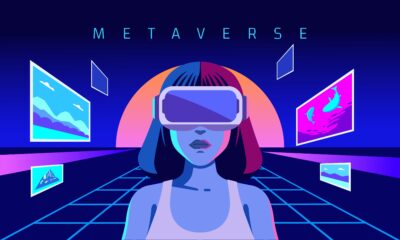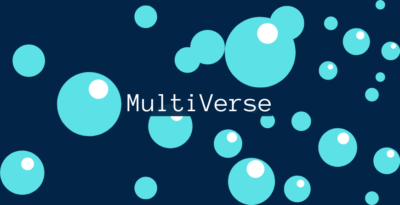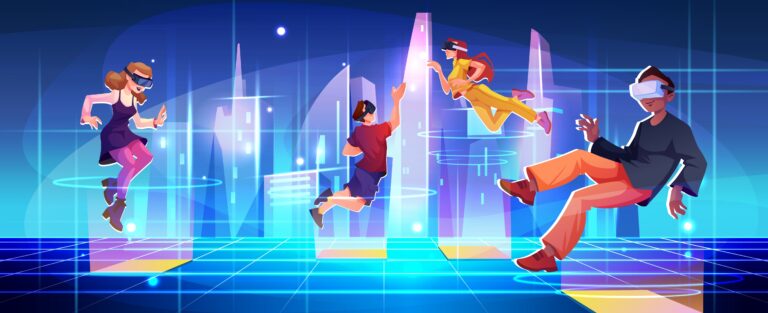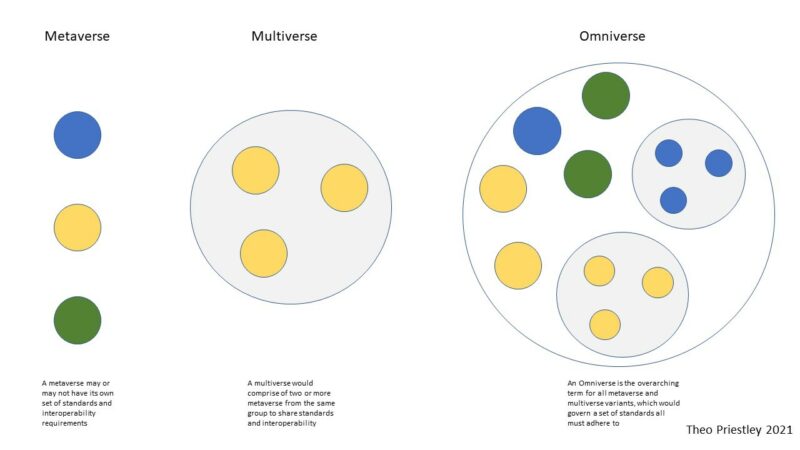Table of Contents
Introduction
Soon after Facebook changed its name to Meta, there has been quite a buzz around that name. Many people are still confused over the big words they see on the internet such as Metaverse and Multiverse. Even the engineers ponder over the differences between the metaverse vs multiverse.
The world around us is changing rapidly with new and advanced innovations every day changing the way we live and perceive things around us. And with the concepts of metaverse and multiverse, we can imagine the possibilities of a virtual world around us. Where we can connect with anyone in the world in real-time outside of our phone screens.
So let’s dive into these concepts and get a clear understanding of the metaverse vs multiverse debate.

Metaverse vs Multiverse: Metaverse
Let’s understand the first topic of the metaverse vs multiverse debate. The term metaverse was 1st introduced in the 1993 sci-fi novel “Snow Crash” by Neal Stephenson. Metaverse is a virtual reality interface where people can interact with their friends, and different objects, shop, play and live digitally. To access it, you have to create a digital avatar that you will control in the metaverse. Since it brings out the real world into a virtual space, it is often termed a virtual parallel universe. This virtual world is a mixture of VR, AR, social media, blockchain, and many more technologies. Many major companies including Meta(previously Facebook), Google, Apple, Microsoft, etc are developing technologies to shape the metaverse which is still in its infancy.
Many people consider Metaverse as a successor to the internet. In its essence, Metaverse is created of multiple 3D worlds rendering data in real-time. The most interesting feature of the metaverse is that any number of users can experience the virtual world simultaneously, with each of them having their own sense of reality, aka, their own ‘virtual life’ which is different from others. The places and objects you will interact with aren’t physically there as well.
In a nutshell, the metaverse is the first ever digitally created reality. With Facebook changing its name to Meta, many organizations have considered its seriousness and have started to experiment with the concept diligently. It allows users to do everything digitally, be it playing video games, strolling in parks, and museums, trading NFTs and much more.
So this was all about the Metaverse. Now let’s move onto the second topic of the metaverse vs multiverse debate –

Metaverse vs Multiverse: Multiverse
Multiverse is an appealing scientific concept but is still hypothetical. According to string theory, every form of matter is made up of a collection of tiny vibrating strings. It also explains that different universes also work in the same manner with their own set of rules and distinct qualities. Software development firms have started to develop a virtual reality platform based on the theory.
Just like Metaverse, Multiverse is also a digital reality platform where people can interact with each other and objects around them, with one major difference- They can only perform one task at a time. In Metaverse, every project be it a game, marketplace, or museum is found in one place, in one world. But in the Multiverse, all these projects are not connected to one universe. Instead, each particular universe has one particular project in itself. Hence, different universes for different functions and projects. In the metaverse, if you are playing a 3D-rendered game, you can also simultaneously shop. But in the multiverse, if you are playing a game, you cannot enter a shop or do any other work. You will have to switch to the different universes allotted for that particular project.
If I define it, a multiverse is a combination of different virtual platforms or individual universes and you can switch between them for different activities. The projects and reality projected in the multiverse, are ideal in their particular virtual worlds but aren’t convergent with respect to the real world. Moreover, they are isolated universes hence their interconnectivity is limited with other universes and their reality. Now I believe you have got some basic understanding of the second topic of our debate. Now let’s differentiate between the metaverse vs multiverse.
What is The Difference Between Multiverse and Metaverse?
Now we have a basic idea of what metaverse and multiverse are, let us explore some basic difference between multiverse and metaverse. Though on the outside they might appear same concepts, there are a few distinct features as well that contributes to Metaverse vs multiverse debate.
The Metaverse concept hints at the possibility of a shared virtual world in the future. The users can swiftly transition around different projects and ecosystems of the multiverse. Meanwhile, Multiverse presents an isolated ecosystem with a particular purpose. The different ecosystems don’t allow connectivity between the different worlds and the user has to switch between them to work with another feature.

That was just a basic difference between the two. There are four key ways to differentiate between the metaverse vs multiverse which will provide more in-depth clarification of the concepts:
Key Differences Between Multiverse and Metaverse
Ecosystems
One of the biggest differences between multiverse and metaverse is the number of ecosystems each contains. People generally assume that there are multiple ecosystems in both the metaverse and multiverse which is a misconception.
There can be an infinite amount of ecosystems in the multiverse, though not interconnected. It is a collection of individual virtual spaces, each with its unique characteristics. If one universe is dedicated to video games, you can only engage with that. But if you have to visit a museum, you have to switch to some other universe for that.
Metaverse doesn’t contain multiple ecosystems. Instead, it offers every activity be it games, shopping, visiting museums, work, etc under the same ecosystem. If a user is playing games, he can shop simultaneously. You can easily enter the multiverse using your PC or AR device.
Thus the comparison of metaverse vs multiverse tells us that multiverse contains multiple separate ecosystems while the metaverse has only one ecosystem with everything in it.
Connectivity Flow
Another major difference between multiverse and metaverse is how their components are connected and in what order. Since they have a difference in ecosystems, their connection order and flow are also bound to differ. Be it metaverse or multiverse both have their own shares of order and randomness existing.
Metaverse is one interconnected ecosystem, hence it has high connectivity in a specific order so the information can flow smoothly among processes. On the other hand, the digital worlds in Multiverse aren’t connected with each other and each has its own uniqueness, the connection is done at random with no order in where the information should flow. Hence, it is filled with a lot of randomness.
Virtual Properties And Ownership
The third comparison of metaverse vs multiverse is about their virtual properties. A multiverse is a collection of separate virtual worlds which are different from each other. Each world is generally owned by a single body. All your assets and data are owned by that governing body or company. That means you can create new data and properties in different worlds but cannot extract desired worth from it. If you have collected coins from some games, you cannot use them for other games.
While in Metaverse, users have full ownership and control over their virtual properties. They can trade their properties and data over different platforms in the metaverse. Most importantly, trading and owning NFT is a lot easier in the metaverse. In a nutshell, your digital properties are owned by the company in the multiverse while you are the owner of your property in the metaverse.
Entities
The last difference between multiverse and metaverse is about the entities and elements they contain. For a multiverse, it is difficult to find individual elements in it as it is a collection of multiple separate platforms, each with its own traits and components. Hence, it gets tough to determine which entity actually contributes to the strength of the multiverse. It is simply just a group of different worlds. The entities in the multiverse will depend upon these worlds and their unique traits.
The metaverse, meanwhile, can showcase different entities with distinct features. Those features and elements include humans, AI, AR, VR, robots, digital avatars, and many more. All these entities with their unique abilities make the user experience seamless and entertaining.
| CRITERIA | METAVERSE | MULTIVERSE |
|---|---|---|
| DEFINITION | A shared virtual reality that allows user to interact with its surrounding and other users just like the real world. | A hypothetical group of different isolated virtual universes, each with its own unique traits and features. |
| Ecosystems | Only one universe shared by multiple users simultaneously allowing them to interact and connect with different platforms in it. | A hypothetical pool of different individual ecosystems with no interconnectivity. |
| Connectivity Flow | Highly connected in a specific order. Smooth flow of information. | High randomness. No order for flow of information. |
| Virtual Properties And Ownership | User has complete Ownership over his digital properties, experiences and data. | Ownership belongs to the company which owns the multiverse. User cannot access data outside the particular world. |
| Entities | Metaverse has different entitites such as AI, AR, VR, digital avatars, and many more. | Each virtual world is its own entity in the multiverse. |
These were the key differences between the technologies. Let’s now Differentiate between the metaverse vs multiverse over one more important factor-
Metaverse Vs Multiverse: Crypto
The decentralized metaverse includes several blockchain-based technologies, such as NFTs and cryptocurrency in their programming features. Multiplayer online games were always a thing with Metaverse but many games include in-game purchases which the platform can utilize by incorporating smart contracts, crypto, NFTs, etc in their VR games and using the digital coins to trade in the metaverse over different things.
A user can trade crypto with the value of experiences and assets they have acquired in the virtual world. With blockchain, a metaverse can have its own fully-fledged economy where users can shop digital assets over permission-less interactions. Metaverses with their 3D virtual worlds and immersive services can utilize blockchain technology as a way to create permission-less interactions between internet users.
Cryptocurrency in the Multiverse is the other face of the same coin. An NFT platform or museum in a multiverse will help NFT creators to connect with utility providers and share their items across decentralized applications. Multiverse allows different brands and creators of dApps to connect through cross-usable NFTs. Concerning gaming, the concept of a multiverse is the same as the physics theory. In physics, there is a theory that says that in different universes, you will be living a completely different reality. Similarly, in the multiverse platform, when players switch to a different platform or world, they will find their items in a different form with different functions.
If you want to create a true gaming multiverse, blockchain is compulsory. Mostly because it provides access to a decentralized experience where every individual is free to do anything with their money without a body governing them. There is also a matter of security that the blockchain network handles superbly.
So, in the debate of metaverse vs multiverse crypto, we found that both platforms handle blockchain technology in their own way. Be it Metaverse or multiverse it is a need for both of them to function.
Metaverse vs Multiverse: What is The Future?
So, what does the future holds for the metaverse vs multiverse debate? When we look into the major difference between multiverse and metaverse, on one hand, we have the concept of the metaverse building a futuristic virtual world that connects everything and everyone. Au contraire, we have a multiverse that presents multiple ecosystems existing individually, each with its own characteristics. Both projects are different in their approach but provide an unforgettable user experience.
So, what does their future appears to be? Many people speculate that the metaverse will outgrow the multiverse while some say they will grow parallel to each other. We cannot conclude as of yet as there are already many functioning multiverses available but the metaverse is still under development. So it will still require some time to make a clear distinction. But before that, can the metaverse function as a true single universe?
As we understand, the metaverse is designed as a shared world where multiple users can partake in multiple activities simultaneously. But with it getting developed by single corporates, it has a high chance of ending as a centralized metaverse with a central controlling force. Technologies such as Blockchain or Web3 might not approve of it as it is totally opposite to their purpose. The vision is to create a decentralized network that is truly permissionless, inclusive, and transparent. A decentralized Metaverse.
Decentralization is the way if we want the metaverse to be for everyone. The idea of a multiverse could help in bringing this approach to fruition. A metaverse might not be able to diversify all the projects without falling into the control of a singular entity. If each metaverse has multiple projects going on, it will in the end require an entity to manage all operations smoothly. Hence, the multiverse approach will help in decentralizing the metaverse by incorporating multiple metaverse projects into a united entity.
That way, instead of one entity controlling everything, there will be different people and corporations managing different universes and making sure it gives a unified seamless user experience. This unified experience will heavily democratize the virtual worlds.
If we want to tread into the future, we cannot overlook the internet, which in upcoming years is going to be revolutionized by the web3 and blockchain technologies in development right now. If that becomes a reality, the metaverse needs to be decentralized, yet be able to give a unified experience. For achieving that, incorporating the approach of the multiverse will be a tremendous help.
This also brings us to the possibility of an omniverse. Virtual reality with every possibility of different universes existing in it. This brings on to the debate of metaverse vs multiverse vs omniverse.
Metaverse Vs Multiverse Vs Omniverse
With now a new term popping up, it might be getting a little overwhelming now. You might be wondering “Where the hell does this Omniverse come from now?” Let me try to explain the concepts clearly.
The vision for this digital reality is to build it into a sustainable continuous virtual space. With specific, universally shared laws and rules to democratize and unify the world under one umbrella. But that’s way too far from reality as of now.
What we have today are multiple independent virtual worlds that do not have interoperability. Metaverse developed by one company might not function with others. From economics to technical standards, there can be multiple reasons for that. Though many companies such as Microsoft, Nvidia, and Unity are trying to accomplish the vision. Omniverse by Nvidia is one such approach. Though their approach is more favorable to corporations compared to users.

The omniverse is one world with all metaverses and multiverses inside it with different levels of interoperability.
At the base, we have a metaverse that contains multiple small projects whose functions will depend upon the framework of that particular metaverse. Thus we will have multiple metaverses, each with its own functions, and different levels of complexities and ease of operations.
Then on the middle level, these individual metaverses will be connected into groups as per their operations and needs. This way we can have several multiverses for various activities. We can have a multiverse for gaming and entertainment with metaverses containing different types of games and social media platforms. Or have a fully equipped multiverse with access to entertainment, shopping, etc.
With this, we will have a digital world with common standards and interoperability. It will also help in securing user data and provide a smoother experience.
Then, finally, we have an omniverse that will contain all of these different multiverses and individual metaverses. At this level, all operations and data will be standardized and rules will be made to govern the whole digital space with uniformity and to make sure everything is managed properly. This will make democratization and interoperability a lot easier. It will also help determine what multiverses need to be connected. As some multiverses created for industrial activities would not need to be connected with the user-based multiverse.
Conclusion
So, how do you think the future will turn out to be? In the debate of metaverse vs multiverse, we have observed that the metaverse is a futuristic concept connecting the world virtually. While the multiverse possesses the possibility of the existence of multiple virtual ecosystems simultaneously. There is also a possibility of an omniverse that will combine multiple metaverses and multiverses into a unified space with its own set of rules.
How much time it will require for such a vision to become a reality, we cannot determine. As of now, different conglomerates are developing their own digital spaces in specific areas. We have Unity and Epic which are innovating gaming experiences, Meta which are revolutionizing social media platforms, Nvidia trying to unite industries, and many more.
But if we want all of them to build a shared digital world, it will require good interoperability. It is essential for building a sustainable digital environment. Metaverse vs Multiverse vs Omniverse – Entities working on them should find a way to connect their individual spaces and work together in accomplishing the dream of a unified virtual world.
Meanwhile, if you are looking to hire a developer in metaverse technologies, you can join Optymize. Optymize is a talent marketplace which provides you best talent as per your project needs. Hire Here.







